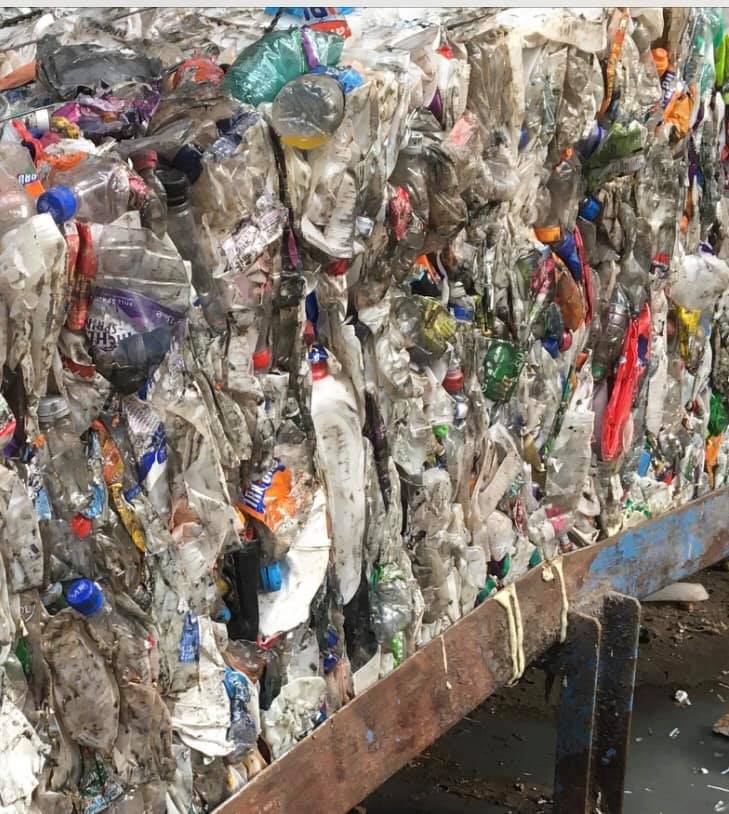The ‘pandemic’s tail’ impacted Scottish waste performance in 2021. New data published by the Scottish Environment Protection Agency (SEPA) today reveals Scotland generated 9.58 million tonnes of waste in 2021, of which only 56.3% was recycled.
The figures, from SEPA’s Waste From All Sources – Official Statistics, provide details on waste from Scottish households, construction and demolition, and commerce and industry. It is the first full set since the 2018 statistics were published in 2020.
In addition to reduced economic activity, business closures and a change in consumer behaviour due to the coronavirus pandemic, SEPA saw a reduction in the amount of data submitted by companies across the period. As a result of so many changes affecting waste data in 2021, it would be unwise to draw longer-term trend comparisons from these figures.
Certain industries were affected more than others by the pandemic such as construction and demolition. Significant changes within this sector resulted in total waste generated falling below 10 million tonnes for the first time, but also contributed to a lower overall recycling rate in 2021. This is because soil and mineral wastes produced by the industry typically have a relatively high recycling rate. The total amount generated decreased by 32.8% (1.83 million tonnes.)
There was less change in household, commercial and industrial waste generation. This can be attributed to the implementation policies targeted at reducing waste, such as requirements to separate materials for recycling and reduction in the frequency of residual waste collections by local authorities in Scotland.
Waste statistics published today (28 March) by the Scottish Environmental Protection Agency (SEPA) show that in 2021:
+ The total amount of waste generated in Scotland was 9.6 million tonnes;
+ 56% of this waste was recycled, a fall from 2018 when 60% of waste recycled;
+ This reduction means almost 1.5 million tonnes less of Scottish waste was recycled;
+ Incineration rose 14.6% compared to 2019 and the amount of waste burned tripled over 10 years
+ The amount of waste sent to landfill also increased by 0.4% from 2019.
Andrew Sullivan, Principal Policy Officer at the Scottish Environment Protection Agency (SEPA), said:
“These latest figures see the pandemic’s tail impact Scottish waste performance in 2021. They reflect a period of significant disruption in the Scottish economy and society and SEPA is not drawing longer-term trend comparisons from these figures.
“The data does however represent another reminder of the importance of fostering a circular, net zero economy in Scotland, reducing waste and increasing recycling to help tackle the climate emergency.”
Kim Pratt, circular economy campaigner at Friends of the Earth Scotland said:
“This is the first time in three years that we have seen a snapshot of Scotland’s waste trends and the picture is extremely concerning.
“A fall in economic activity in the pandemic may have led to a short term drop in the amount of waste Scotland produces but this is likely to rise again once activity resumes.
“Despite the pandemic reducing overall waste levels, the amount of waste burned continues to rise and has tripled in just ten years. The moratorium on new incineration was a vital first step to reverse this trend but these statistics show it is not enough and must now be backed up with a ban on burning plastics and a phase out plan for existing incinerators. However, rather than closing incinerators, projects which already had planning permission are allowed to start operating and are receiving funding. This needs to stop now.
“Scotland must transform the way it uses materials and waste less to reduce our impact on the planet. It’s vital more is done to prevent valuable reusable or recyclable materials burning in incinerators or ending up in landfill. Ensuring waste is not created in the first place is the best way to reduce its environmental impacts, and if waste is created, we must recycle as much of it as possible.”
The Scottish Government published the second and final part of its independent review on incineration in February 2023. The review recommended that the Scottish Government should introduce a ban on burning plastics by 2030. The Scottish Government has not yet responded to these recommendations.
The NESS incinerator in Aberdeen was given Scottish Government funding in November 2022, six months after the first independent review on incineration was published. Despite construction problems and local communities voicing concern, the NESS incinerator begun burning waste in 2023. In March 2023, it was revealed that, rather than treating the toxic bottom ash produced by the incinerator locally as planned, the operators are sending it over 100 miles to Fife.
SEPA will continue to collect and analyse this important information to support evidence-based decision making in Scotland’s post-pandemic recovery.






